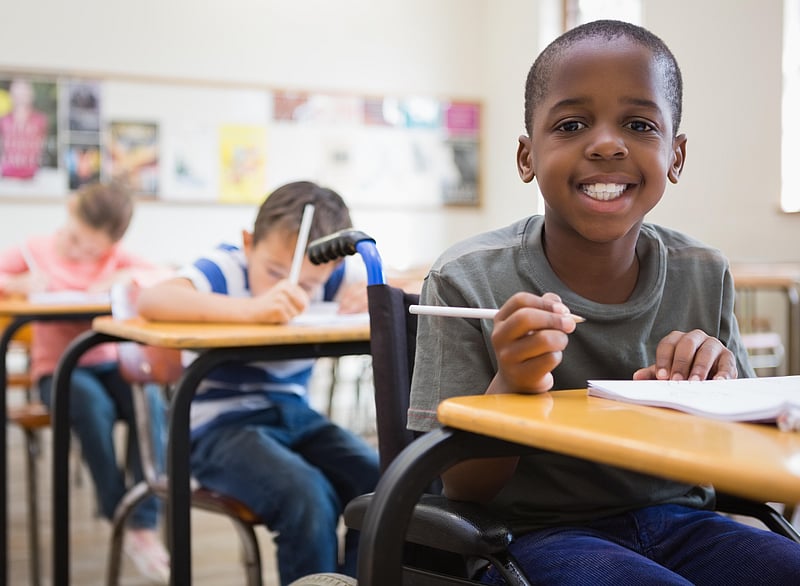Get Healthy!

- Cara Murez
- Posted August 16, 2022
If a Child's Grades Falter, Consider Hearing Loss
While some may think of hearing loss as something that happens with age, it can also happen to kids.
Parents and teachers should consider hearing loss if a child's academic performance declines or he or she develops behavioral issues, lack of focus and depression, the American Academy of Audiology advises.
"Because children often don't realize they are missing information and may not communicate hearing difficulties, issues with auditory accessibility may go undetected,"said academy president Sarah Sydlowski, who is audiology director of the Hearing Implant Program at the Cleveland Clinic, in Ohio.
Babies typically have their hearing tested shortly after birth, but hearing loss can start in early childhood, too. In the United States, about two to three of every 1,000 babies are born with detectable hearing loss, according to the U.S. National Institute on Deafness and Other Communication Disorders.
It's not known how many children have hearing loss because many cases may be undiagnosed. Illness, ear infections and exposure to loud sounds can all affect children's hearing.
And hearing loss can impact a child's education. Children with untreated hearing loss use more mental energy to understand what is being said, according to the academy. It may appear they are not paying attention when they actually are missing what was said.
"A child with minimal hearing loss may be missing a significant amount of the classroom discussion,"Sydlowski said in an academy news release.
Unfortunately, she added, children may be identified as having a learning disability when they actually have untreated hearing loss.
"Hearing loss should always be ruled out when there are academic and speech and language issues," Sydlowski said. "We want to treat the hearing loss first since untreated hearing loss can disrupt all aspects of educational success."
Among the signs to look for are difficulty following through on assignments, not understanding the questions or not responding appropriately to them.
The academy also suggests watching for speech that is different from that of other children the same age, including struggling to pronounce simple words, being unable to repeat a phrase or having language delays.
A child with hearing loss may often ask you to repeat what you say and watch your face intently while you talk. The child may have trouble hearing on the phone, speak loudly when not warranted, have chronic ear pain or complain of loud noises that he or she cannot identify.
The child may appear more weary than is typical at the end of the school day. A child with hearing loss may also turn up the volume on the TV, computer or headphones, and may favor one ear over the other when using the phone, choosing a seat or responding to questions.
"Parents and teachers don't always realize that a child's behavior may be a sign of hearing loss,"Sydlowski said.
Parents who suspect a problem should have their child evaluated by an audiologist, she advised.
"Audiologists have the tools and training to identify hearing loss, degrees of hearing loss, and can recommend solutions for children of any age,"Sydlowski said.
More information
The American Speech-Language-Hearing Association has more on hearing loss in children.
SOURCE: American Academy of Audiology, news release, Aug. 11, 2022





